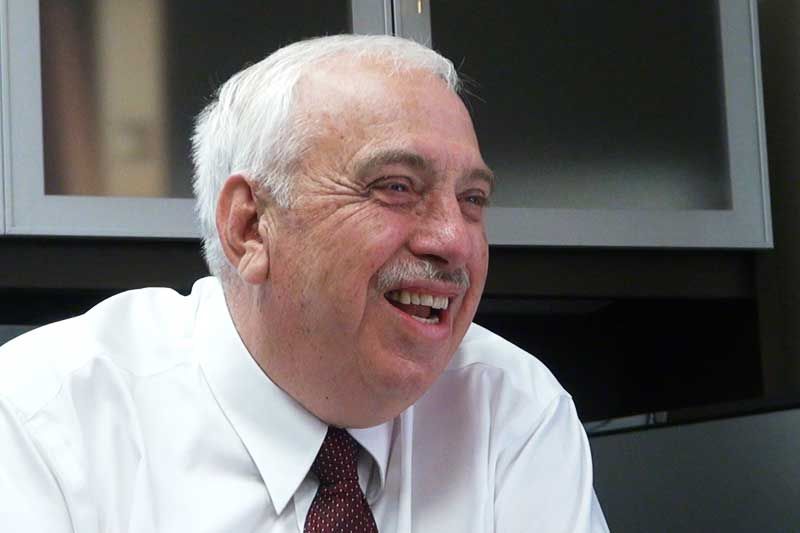Jeff Green | Jul 30, 2015
Last year, Wayne Robinson stepped back from his role as CEO of Robinson Asset Management, a company that manages money from across the globe out of an office in Sharbot Lake.
While most of the other Ontario companies that do that kind of work are based in Toronto, and perhaps Ottawa, Robinson's remains based in a small rural community, where it is one of the larger employers.
The company had its genesis managing the retirement income of local teachers by investing in real estate, but has grown into global markets over the last 30 years.
When we interviewed Wayne for this article, we talked in his office, not so much about his company, but about his upbringing on a farm in the Bradshaw area outside of Tichborne, and also about the prospects for communities in Frontenac County and elsewhere in rural Ontario.
Wayne Robinson was born at home on the farm in the late 1940s, the seventh son of a Catholic farming family. When he thinks back to his childhood he considers that he came along at a 'relatively prosperous time' in the history of the region, even though it has always been an economically disadvantaged area.
“There was work off the farm for my father, so while we sort of made a go of it as a dairy and mixed farm, there was other money coming in, which was not the case a generation earlier. My father worked for McConnells and my brothers all got jobs in construction before they went off to do other things.”
He also remembers the way the family finances were handled.
“My brothers brought their pay envelopes home unopened and laid them on the table. My mother made sure they had everything they needed, and spending money on the weekend, etc., and that was that.”
In those days, the small towns in Central Frontenac, such as Parham and Mountain Grove, were self- contained small communities unto themselves
“Tichborne was prosperous, because of the railroad station and the junction between two railways. There was a hotel, a bank, a theatre, four stores. It really catered to travelers.”
With the loss of the railroad and the resulting tendency for people to drive to Kingston or Ottawa to work and shop, the towns in what is now Central Frontenac have maintained their community ties, but are not as strong as they once were.
“Economics have no morals. People will always buy the best product at the lowest price, or what they think is the best product at what they think is the lowest price; there is nothing anyone can do about that. So they drive off to Costco, and while they are in Kingston they have a day out as well.”
But, he says, rural centers can and will survive, even if some of the back room operators in Toronto and Ottawa privately think that there is no future for rural Ontario.
“You take Sharbot Lake, for example. You can live here, and live a good life here. I think it has a future, but it concerns me when I talk to people who are connected to the top levels of government who think that Toronto is the only center of growth in Ontario and that it should be some kind of city-state.”
What they don't understand, according to Robinson, is that goods are created outside of Toronto; food comes from farms and is not made in the store.
“The thing that makes me feel that there is a future is that people can make a go of business here, and what other business people need to do is to let people who are thinking about doing something know that there is support here; that the township is willing to help out. And there are people doing that, with an Internet connection and a good idea and a sense that this is a good place to live.”
One problem is that those businesses cannot be sold easily when the owner decides to stop or to retire.
“We see that with farms and with other businesses like that. There is no one to take over. But still I feel optimistic that there is a future in rural communities as long as we keep encouraging each other to keep going and make sure that people feel we will support them if they take a chance.”
More Stories
- Heavy turnout in advanced polls in Lanark-Frontenac
- Massive Crowd Attends Central Frontenac Egg Drop
- Strong Mayor Reveals Rift Between CF Mayor Smith & Council
- South Frontenac Council looks at the Mill Projects
- Addington Highlands Give Go Ahead for Community Garden
- EV Charger Grand Opening in NF
- Easter Egg Hunt at Pine Meadow Nursing Home in Northbrook
- The Night Sky - May 2025
- Mark Carney stops off in Perth
- Quilting Show Comes to South Frontenac

